 While tabletop games are traditionally played with pen and paper around a table, increasingly they are being played online. With more phone apps coming out every year, even people playing in person are adding more tech to their games. Discord is one of my favorite tools for playing RPGs: the versatility of the tool makes it essential for online play, and can enhance table play for secret conversations, organizing campaign notes, or even just adding cool music. What follows are 5 amazing tools to enhance your RPG experience on Discord. 1) Avrae The most useful capability of Avrae is that you can import characters made on D&D Beyond or through a google sheet, and automatically generate macros for them. It makes it very easy to do text-based combat over Discord using simple commands like “/attack”. Other useful tools on Avrae include an initiative tracker, advanced dice rolling (2d6+4 drop the lowest or reroll), and the ability to look up spells, monsters, items and more from the database. With just a few simple text commands, you have access to all of the 5e SRD and can easily simulate most aspects of a campaign right from the Discord app. Though it’s the most comprehensive bot for Dungeons and Dragons, the weakness of Avrae is in its focus. Avrae is only usable with Dungeons and Dragons campaigns, and focused particularly on 5e. If you’re playing Pathfinder, or any other system, you won’t be able to use it. 2) Dash Delta The Dash Delta bot has slightly different functionality, but supports multiple systems including: 5e, 3.5, Pathfinder, and Starfinder. While you cannot import characters, it still has a complex inline dice roller and the ability to look up spells, monsters, and items. One thing it does differently than Avrae is you can generate random character or tavern names, gossip, and weather. For example, when I type in “/ generate tavern-name”, it gives back “The Kobold and the Barbarian.” When I type in “/generate weather”, it returns “Today the weather is wet with a flurry of snow. The weather has been like this for several days. The weather is causing the sun not to go down. The locals are loving the weather.” This is a great tool for any GM that wants to roll some random table without clicking through various browser tabs, book pages, or links. 3) RPG Bot RPG is a system-agnostic bot that allows you to create a character right in discord by answering a few questions. One unique feature is that it allows you to add pokemon to your inventory, and even set the stats of the pokemon. Perhaps the most useful function is the bot has an extensive inventory and economy system. Using this bot, servers can accurately portray an economy system that includes character inventory, an auction system, loot, a lottery, and a market. It even allows you to “pay” other characters through whatever fictional currency system your server is using. This is a great addition to any RPG server that either focuses on Pokemon or which wants to simulate a large, out of session economy to immerse its characters even further into the world. 4) D1-C3 D1-C3 is a bot specifically designed to enhance Star Wars RPG games. This bot supports Edge of the Empire, Age of Rebellion, and Force and Destiny. This bot is able to track initiative and manage the destiny points of your players, as well as roll any combination of SWRPG dice. The bot is made by the same company creating the new Genesys game, so it reflects their design philosophy and will work with that system as well. 5) Branch Branch is useful for those who want to add some thematic and environmental music to their campaigns. Branch will play the audio from any youtube video you select, and so can be used to curate a playlist for your campaign. Whether its music for battle, taverns, or a PC death, you can use simple discord commands to play them at the appropriate time, and control the volume for each of your players. It’s not a perfect app, as there are a few glitches and it needs some more features to make it even better, but it updates daily. You may not use much technology in your game, but if you do, consider using these discord bots to lighten the load of being a DM. Ryan Langr is a DM, player, and content creator of Dungeons & Dragons 5e. His passions include epic plot twists, creating exceptionally scary creatures, and finding ways to bring his player’s characters to the brink of death. He also plays Pathfinder/3.5. In his real life, he is a stay at home dad, husband, and blogger of many other interests. Picture Reference: Discord logo from https://www.podfeet.com/blog/wp-content/uploads/2018/02/discord-logo.png 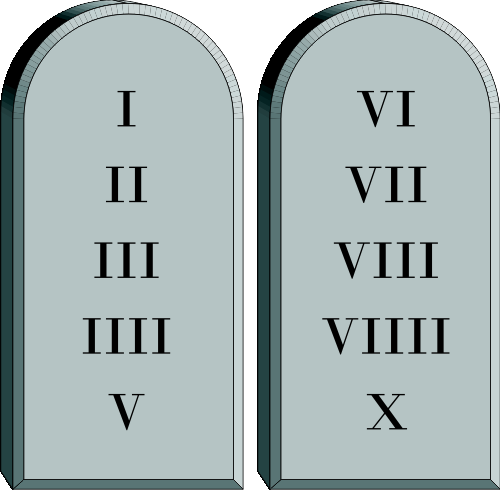 I’d like for you to think back on your first time ever roleplaying. For most of us, this experience was one met with equal parts excitement and nervousness, and I am no stranger to having new players pop in an out of my games. I see this all the time. Players walk through the threshold, arms heavy laden with books and dice and paper, but as soon as they sit at the table, something shifts. When play begins, they are expected to know how to transport themselves into a fictitious world full of unfamiliarities. Strangely enough, however, actually playing the game is something that most green players have a pretty decent handle on. It is the unwritten rules that catch them. You will notice that across tables, games, and engines, there are some terms of agreement and etiquette that are simply understood by the seasoned players. By their very nature, these unwritten (sometimes even unspoken) rules have to picked up along the way as one progresses through their roleplaying career, but that is just not good enough now-a-days. So, whether you are a DM wanting gameplay to go a bit smoother with your newbies or you are a fresh player yourself feeling like you just are quite getting it, here are the 10 Commandments for Players. 1) Thy DM Is God Sometimes referred to as “rule 0,” understanding that your Dungeon Master has the final say on virtually everything is the first step towards becoming a good player. If you have never DMed before, I will be the first to tell you that it is a lot of work. However hard you think it is, multiply that times ten. Dungeon Masters are not only facilitators for gameplay, but also the storyteller, mediator, and godhand. It is crucial to remember that your host is wearing a lot of hats in their best attempt to give you a couple hours of fun and diversion. Their job is hard; don’t make it any harder than it has to be. That is not to say that you always have to agree with your Dungeon Master, but qualms need to be brought up in a respectful, constructive way. Saying something like, “Well that’s not what the rules say,” is not a valid argument. Dungeon Masters are, just as their name implies, masters. They are skilled artists, no matter how new. Often times, Dungeon Masters will bend or even break rules to help facilitate new mechanics or ideas, essentially creating their own variation on the engine they are working with. They have a lot of power, and yes, they have to treat it with caution. But mid-game is no time to start vocalizing your distaste for your god. DMs are omnipotent, and it would behoove you to come to terms with that. 2) Thou Shalt Respect The Table Now here is something close to my heart. The metaphor of the table is an intriguing one. Think about it: tables represent gathering, discussion, sharing, cooperation, and unity. When you come to the table, you should be coming with the purpose of sharing in mind. Sharing ideas, sharing a collective story, sharing parts of you that you express through your character are all things that crop up at the table. The table is, in this way, a kind of sanctuary. Roleplayers play this particular breed of game for the transcendent experiences that so often accompany them. For the length of your session, you have the privilege to zip out of the world of the mundane to slay beasties, sit on mountains of treasure, and be as extraordinary as your imagination will allow. The table is the foundation for all of this. When you sit down in this sanctuary, the time of real life is put on pause. The stressors of life suddenly have no more consequence. That rent that you are worried about paying is not in your Dungeon Master’s world. Whether they realize it or not, when players arrive to the table, they are often looking for something inside themselves. Their unconscious brain builds a simulation that it can toy with and experiment on things that it normally wouldn’t have access to. I’ve seen players learn some pretty deep things about themselves through role playing games. I have even taken some life lessons away myself. I will never forget a moment in one of my campaigns when one of the beloved NPCs, Hugo, was about to fake his death in order to protect the PCs. Obviously, the players had no idea what was about to happen, but Hugo went about saying his goodbye’s without tipping his hand. Moments before he steps out into an arena to do the deed, something hits me. A lump in my throat. The players look at me kind of confused. I knew that I was literally about to hurt these people in a real way. I had to give them something. Hugo takes one step into the dusty arena, turns around, and says, “No matter what happens, I’m so glad we had this adventure.” They knew then that something was up for sure. That day, there were real tears at the table from everyone, myself included. Tears from them, because they didn’t give the farewells that they would have, if they had known. Tears from me, because I had just broke the hearts of my friends. Moments like that are why I respect the table. Respect the table, and it will always give back. 3) Thou Shalt Not Be Distracted Get off your cellphones. Can I move on now, Josh? What? That’s not good enough? Hey folks, get off your cellphones, dammit! Unless you are doing something that pertains to the game at hand, how about we stop everything else. Once things are ready to go for your game night, that is not the time to make a call, make dinner, talk to the dog, dress a child, engage in coitus (... I shouldn’t even have to say that one), and basically anything else that pulls your attention away from the awesome game before you. Here is a little test to tell if you’re engaging in distracting behavior, and it comes to you completely free. Ahem. Did you say any permutation of the question, “What did you say?” If so, you were being distracted. That is not okay, friend. As mentioned previously, your Dungeon Master works tirelessly to make an engaging game for you to play; don’t let a text from your boyfriend disrespect that. This rule is high on the list of commandments, because it can be a real game changer. The minute one person decides to buckle down and cut out distractions, gameplay remarkably starts moving much smoother. Distractions are like a virus. One person gets the “pet the cat” strain, and it quickly becomes an infection. Sooner or later, the person seated next to them catches the “watch them pet the cat” strain. Oh no! The whole table is infected with Feline Distractyitus! If one person would have had a bit of self control and said, “Hey, why don’t we keep the cat off the table?” this whole plague could have been avoided. Everyone at the table is responsible for minimizing distractions during play, not just the DM. Do your part in keeping people engaged; your Dungeon Master will appreciate it. Who knows, maybe you will get that +2 flaming battle axe you have always wanted as a reward. 4) Thou Shalt Honor Thy Commitments Never, ever, under any circumstances put your friends in the position of asking you to stop coming to game night due to repeated tardiness or absence. I cannot stress this enough. There is no greater awkwardness then having to dismiss a player, because often, the reason for their absence would be a legitimate one under other circumstances. It is vital to remember that when you don’t arrive on time, especially if you gave no heads up, you inconvenience everyone at the table. I once had to ask a couple players to discontinue their characters due to repeat offenses like this. We had a scheduled date and time every single week, and this schedule was clearly communicated to everyone. Strangely enough, these players always managed to double book and plan something for that date and time. A lot of the time, that time was spent with their family members. I totally get this. I even tell my players to remember that Pathfinder (our game of choice) is just a game and should never get in the way of important, real life happenings. Funerals, holidays, unexpected emergencies, vacation, getting called into work, etc. are all legitimate reasons to not be at my table. Wanting to swim with your other friends, playing golf with your dad, having brunch, and what not are absolutely not legitimate events to plan over your scheduled roleplay time. This goes doubly if you did not even have the decency to give everyone some notice. It might just be a game, but if you made a commitment, you made a commitment. Honor that. You are an adult and should be more than adept at honoring your word, and if you are not an adult, this is a good exercise in following through with an agreement. If you have other things that you would rather be doing, please for the love of the nine, just excuse yourself from the campaign. Do not be so selfish as to assume that everyone else is okay with skipping a session for you again, because I can tell you this: they might be now, but they won’t always be. 5) Thou Shalt Do Thy Homework I won’t harp on this one too much, but it is important nonetheless. As a player, you have a handful of things that need to be in order before each session. Most of the time, this will just mean arriving punctually with your dice, papers, and what-have-you, but other times, your list may bit a bit larger. On days where you are to be leveled up, make sure you are squared away before play begins. If you have spells that need to be prepared, at the very least give them some thought and have a general idea of the arcane wonders you would like to sling. Everyone else at the table has their own homework to do; don’t wait until people are ready to play to whip out your core rule book. Here is a million dollar idea. Someone needs to make a dunce hat with the words “Hold on a second” written on it. If you feel like your DM would want to put that hat on you, adjust how you prep. Most of the time, level up takes ten minutes tops if you have done it before, and there are tons of online resources to give you hand if you feel like getting creative. The more time you give yourself to do your homework, the more room you give yourself to come up with cool ideas for your character. Think of your homework as an investment that you are putting into the game. Almost always, the people who do their homework and don’t rush to finish it minutes before the game are more satisfied with their characters abilities and quirks. Homework forces you think about your character and how they are constructed. Don’t cheat yourself out of that. 6) Thou Shalt Not Fudge Fudging is the quiet, often unseen, bending or breaking of a rule in your favor. Dungeon Masters have quite a bit license to fudge as long as it is well meant. Honestly as a DM, sometimes fudging is just more convenient. It is less work to just tell your players to roll 2d10 when they get hit by a spike trap than to calculate the damage of every single spike and the force that they hit the player with. Fudging is also tactically useful when trying to tell a cohesive narrative. This privilege is not afforded to players though. In the Dungeon Mastering community, we have a word for players who like to fudge. Cheaters. If you roll a three but you really wanted a five, you do not have the license to quickly pick up your dice and turn it to show that you rolled a five. I have had several players that do this. They roll, wait for it to stop, but as soon as it stop, they quickly snatch it up to “look at it” then tell me what the result was. This fudging technique is easy to spot, but there are some more complex fudges that DMs and players miss. Falsifying character sheet information is one of the main offenders. Often times, your DM will not scrutinize your sheet for errors very often. You are expected to have enough integrity to operate within the designated rules of your station as a player. Games are rules. When you break the rules, you break the game. 7) Thou Shalt Encourage Thy Neighbor If you were to have me write this list a year ago, this commandment probably wouldn’t have been here. I like this one a lot though, and it warms my heart to see my players follow it. I hope I can speak for all hosts out there when I say that watching players help one another to complete a task, check rules, give helpful suggestions for play style, and generally encourage good roleplay are some of the most rewarding times in all of gaming. Even if you are brand spanking new at roleplaying, you will never be in the wrong if you encourage a fellow player to join you in battle or help you solve a mystery. Telling players they did a good job. Giving high fives. Cheering when your neighbor rolls well. All of these things not only bolster commandment number 2 but also build an atmosphere where that kind of behavior is not only accepted but encouraged. Parties that encourage one another always wind up having more fun than the parties that don’t. If a player at the table seems like they are down or confused, give them a hand. Some of the greatest adventures I have ever had the privilege to master have been the result of a couple players scheming with one another. If you feel like your table is getting toxic or even awkward, throw out a thanks or a good job. You will be surprised at how far that will go. 8) Thou Shalt Ask Questions Never be okay with not understanding. If you aren’t quite understanding a rule or something that your host is telling you, say something! Most players and Dungeon Masters don’t assume that you have memorized every page of the rule book. It is okay to not understand! This is especially important in situations where your Dungeon Master has homebrewed something. I, myself, am a pretty avid world builder. I am presently working on a whole new dictionary in my conlang, Driggan. I make up mythologies of heroes and villains. Different countries will have different customs and modes of doing things. Economy changes based on the kingdom and currency. I can hardly keep it all straight in my head, and I am the one making it up! I will be the first to admit that. I love when my players ask questions, especially if it is pertinent to their characters’ motivations. Once, I played with a tengu rogue character who loved stealing bones. Buried bones, burnt bones, bones still being used inside a creature, any bones would do! I loved when that player would look at me ask things like, “How structural does that dog appear to be?” or, “On a scale of 1 to 10, how much does that lady look like she is using her skeleton?” Asking questions like these or questions about rule clarification are only ever going to help you! Often times I will throw my players extra bones (hah… puns) by asking prying questions in this way. I want to encourage players to look through the eyes of their characters. One person might see a spooky animated skeleton trying to kill them, while another person may see it as the newest item in their collection. Ask questions, as it will give you a better understanding of the world around you and of how the game works in a mechanical way. 9) Thou Shalt Share This goes back to commandment 2 in a way, but it is worth mentioning. Share your ideas. Share your plans. Share items. Share the spotlight. Share feelings. Everyone’s voice is equal at the table. If your character has a cool plan to thwart the machinations of the BBEG, don’t keep it to yourself just because you are afraid the others might not like it. Share your character’s thoughts, and don’t wait for your DM to ask for them. If your character walks into a room full of jewels, you have every right to gush and explain how awestruck they are! Sharing brings richness to the party like nothing else can. When you share with a player or NPC, imagine it as a little knot tying them to you. By the end of the campaign, that little knot should have turned into a massive net ready to catch any narrative salmon your DM throws at you. Also, don’t be afraid to share personal feeling with a NPC. This one sounds a little odd, but when players start divulging their character's motivations and convictions to an NPC something special happens. That NPC slowly rises in the ranks of priority in a DM’s mind. This is irresistible to a good DM, because so often they are crafting monsters and NPCs that want to kill you. It is a great change of pace to have a pocket full of fake fantasy friends that each interact with you in their special way. I am seeing that evolution happen in my present campaign between a kitsune character and a fantasy cyborg NPC. For one reason or another, she has grown really attached to that mechanized, dwarven misfit, and there is a real comradery developing. Do I know where it will lead? Nope. Am I thrilled to see where it will lead? Yep! 10) Thou Shalt Die With Grace Markus Zusak, author of The Book Thief said it best, “A small fact: You are going to die.” At some moment in time, your character will more than likely be hacked, mangled, chopped, screwed, broken, beaten, battered, mushed, mashed, flattened, filleted, scrambled, blended, sliced, crunched, crushed, or all of the above. Start every session knowing that fact. The most exciting parts about roleplaying games is the extraordinary ability for the players and their respective characters to cheat death. Characters leap from great heights. They plunge into hordes of baddies. They weather a flurry of blows with only a rusty sword in hand. Against all odds, they come out of these scuffles with little more than a few bumps and a big ego. Sometimes. Sometimes they die, though. Sometimes they die tragically and with a bang. Other times they die so ingloriously that it could make an onion cry. No matter how it goes down, know that death is the most vital mechanic to making most roleplaying games work. Believe it or not, the fear of death is a pretty good motivation. It can be discouraging or unsatisfying, and maybe you won’t want to make a new character for a while. That is just fine, friend. Mourn the loss of your character, but don’t let that be the end. There are more adventures to go on. There are more beasts to slay and plans to foil. If the death of your character is particularly difficult for you to cope with, ask you DM if your character can say some last words or do something iconic to them. I’ll put a link to it, but as a DM one of the hardest goodbyes to a PC ended with a flick of a coin. Allowing him that small gesture literally altered the world forever. It was tough to let him go, but death means something. It too deserves its place at the table. Being a player is rough, especially when you are getting into a game full of seasoned adventures. With luck, you can implement these commandments into your play style to help for years to come. I am by no means the authority on how to play every roleplaying game, but I can say that I know the difference between a good table and a bad one. You will find that dissonance at the table or awkwardness often comes from the infraction of one of these commandments, but simple tweeks in attitude and perspective can have any group back on the fast track to kicking evil’s butt! In the end, the most important commandment of all is to have fun in a way that everyone else can have fun. These games mean so much to so many people in so many different ways, and finding a simple foundation like these ten commandments can be the first step to participating in something truly wonderful. Amen. Andrew Pendragon is a veteran roleplayer, Dungeon Master, and story teller. His work can be seen featured on outlets like the Chilling Tales for Dark Nights podcast and the Youtube channel BlackEyedBlonde, but he takes the most pride in his High Level Games affiliate podcast The Dragon’s Horde where he, alongside his co host, answers listener submitted roleplay questions and weaves them into a false-actual-play adventure! Picture Reference: https://www.pinterest.co.uk/pin/468233692479236713/ 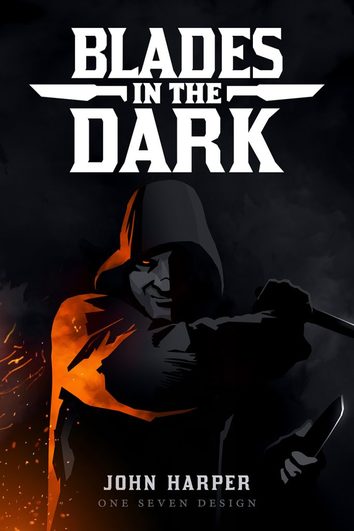 It’s not often that I come across a game that breaks the mold. Sure, some systems will improve or change up the formula significantly enough to make a splash. Blades in the Dark, a game of heists in a broken world, delivers a wholly different tabletop experience. This alone makes it worthy of note, but the smooth execution of this new system makes it worthy of praise. As I am a grognard whose style doesn’t shift much from game to game, system to system, I struggled somewhat with adapting to Blades’ unique style. I hope to elucidate these key differences for those who may be in a similar situation, as the game is too good to pass up. 1) Setting Expectations In Blades, players roll a number of d6s equal to their skill, plus some additional dice depending on circumstance. Like most games, the GM describes the difficulty of the task. Unlike most games, this difficulty does not dictate a number of successes or target number to achieve. Instead, the GM sets the consequences and the effect of the action should it succeed, and players roll and take the highest die result. For instance, a player may describe how they want their character to bull rush a thug who has a gun trained on them. In most situations, the GM would judge this action Desperate (the most dangerous rating) since it is unlikely they will emerge unscathed. Additionally, the GM would rule this as a low level of effect. The player character isn’t likely to incapacitate the thug with a single charge. However, should the thug be standing on a ledge or near a wrought iron grate, their capacity for injury increases, and so does the effect level. The narrative circumstances directly affect the mechanics of the game in this way. The player then rolls, and should the highest die result be a 1-3, they fail with consequences (they are shot and unable to connect with the thug). If it’s 4 or 5, they succeed with consequences (they slam into the thug, but also take a bullet for their trouble), and if it’s a 6, they succeed without negative consequences (the PC hits the thug before they can get a shot off). It’s up to the GM to keep their players informed about the aspects of a scene so that everyone’s expectations are the same. What if the PC had a gun too? What if that PC decided to talk down the thug instead? The GM applies a rating entirely dependant on these shifting circumstances, which makes the next point all the more important. 2) Gathering Input This game, more so than most others, relies on a give and take by the GM and players. For instance, the players choose which skill they want to use to complete any given task. The GM is encouraged not to deny the player’s selection, rather to ask the player to describe how they want to use that skill to accomplish that objective. In the previous example, the PC could use their Skirmish skill (most often used for scuffles), and the GM would most likely rule as described. Should they instead ask to use Prowl, they would have to describe how that skill applies to the situation. Do they try to duck behind cover, skulk through the shadows, then clobber the thug once their unaware? It’s up to the player, but the goal remains always to serve the narrative. The GM is also intended to take input from players on how they want the consequences to apply to them. Physical harm and negative outcomes can be resisted by the player, but doing so causes Stress to accumulate and puts the player closer to a permanent Trauma. Sure, you didn’t get shot, but it means you had to throw yourself behind cover at the last second, and the near miss left you rattled. The GM is the final arbiter on how the consequence is avoided, or if it’s merely reduced in strength, so the power does lie ultimately with the GM. This keeps the gaming table in check while also making players feel more involved in the storytelling process. 3) Narrating Time Time is a funny construct in Blades. Things are not always done entirely chronologically, and there can be significant gaps without any actual gameplay problems. Showcased here is the flashbacks system. Before a job, your gang of (mostly) competent criminals meets under the lantern’s glow to plan out the fine details. The players, however, do not. Instead, they take preparatory actions, such as scouting the base or researching the target, decide on a style of heist, then determine the point of entry. The game then cuts immediately to the action. Any and all remaining details are filled in by the gang declaring flashbacks in the middle of the heist. “I planted a gun under the seat during prep,” is a tried and true one. “I brought flowers for the girl we have on the inside to convince her to help us.” These are all actions that players can take during a heist that affect the past yet aid the PCs in the moment. Depending on how wild and unlikely a flashback is, it might require some Stress on the part of the character. Still, this mechanic provides a dynamic way to skip the endless debate about each minute detail of a job beforehand and get right to the fun. It’s also the hardest thing for GMs and players to get used to. Once you get the hang of it, though, you may want to import the system into every other similar game you play. Blades in the Dark is a fantastic game with a really detailed setting, but it’s so much more than that. It truly innovates in a major way and provides a new, and in some ways better, way to run TTRPGs. It’s just we grogs who need the occasional kick in the pants to keep our minds open so we don’t miss these gems when they come around. David Horwitz is a gamer and freelance writer/editor with an obsession for exploring new forms of leisure. If you’re looking for an inquisitive mind and a deft hand, or just want to chat about gaming, contact him at www.davidhorwitzwrites.com/contact. Picture Reference: https://www.evilhat.com/home/blades-in-the-dark/  Between RPG products, novels, comic books, TV and movies, random blogs, and so on, there are already so many amazing worlds out there. Many of these worlds are tried and true and have decades of lore and refinement. But, for as amazing as some of these worlds and tropes may be, they aren’t novel, and they aren’t yours. Those worlds have already been explored and those stories have already been told. There’s nothing wrong with tried and true, with staying within the lines of a setting or a genre, with telling a story that has already more or less been told, but what I love about tabletop is that it allows for something more. With no artistic talent, programming experience, or a crew of performers and a special effects team, you can build a novel world. Your players can experience genuine wonder in the exploration and discovery of things truly never seen before. There is nothing wrong with orcs and elves and dragons, but at some point, they became mundane. You know what an orc is, and it makes you feel warm and fuzzy and nostalgic, and as the worldbuilder I’m just leveraging your knowledge and nostalgia. That’s simple and sensible enough, but where’s the fantasy in that?! If you want to build worlds that make you feel the way you did when you first read Lord of the Rings, let’s try something new! Here are 5 tips to bring fantasy back to the fantasy genre. 1) Understand The Tropes This first tip isn’t about building a unique world per se, but it’s an important first step. Why do we love orcs and elves and dragons? As I discussed above, part of why we still use these creatures is because they’re known quantities, and they’ve worked in the past. But more than that, they hold some symbolic value. Elves can represent a people in tune with nature, or the end of an old age, or (if you’re going for more of a fey interpretation) whimsy and wonder. You need to understand what the tropes are and why they exist in order to change them. 2) Subvert The Tropes Now that you’ve thought about what the tropes mean, subvert them! Maybe in your setting, the elves are undergoing a magi-industrial revolution, using new magics to twist the forest into woody machines. Maybe the elves are a new race, and this is a world in which the age of humanity is coming to an end, rather than the reverse. I was a preteen when I first played the video game Warcraft 3, but the idea that the orcs were once a noble, shamanic people prior to the events of the first game blew my mind. By that point, between Warcraft and Lord of the Rings, I thought I already knew what an orc was supposed to be. By subverting my expectations, Warcraft left a lifelong impression on me of what the genre of fantasy can be. 3) One Unique Thing I’m borrowing this term from the tabletop RPG 13th Age, but I think it can just as easily apply to worldbuilding as to character creation. This is in-line with the above, a single subversion can entirely change the nature or tone of a world. However, other additions or changes can also make a world unique, without totally subverting it. In this world, maybe halflings have elongated faces and big eyes, as if they evolved from a lemur. Maybe that inspires you to place the halflings on an isolated, Madagascar-esque island, rather than The Shire, deep in a Euro-inspired forest. Maybe elves have bluish skin and white hair, making them just a little more alien. Maybe they actually are the descendants of ancient alien refugees, and there are subtle hints throughout the world that their magics are in fact advanced technologies. 4) Borrow Generously Maybe you don’t just want one change, but a world entirely different from traditional fantasy. It can be daunting to build a whole world, or even to decide where to begin. In such a case, take from what’s already out there! So you have a fantasy setting, but instead of orcs and elves, you have daleks and twi’leks, and instead of paladins and wizards you have jedi and onmyoji. You can change the names, shuffle around details, adapt them to whatever technology level or setting aesthetic, it’s just about giving you a place to start. At this stage it might seem a bit slapdash, like a child smashing their toys together. That can be fun, but let’s take it one step further: how do these disparate elements come together? In the process of answering that question, I think you’ll find that the world starts to build itself. Even though these are known quantities, by arranging them in a unique way, they can become something novel and greater than the sum of their parts. 5) More Is More (But Also Less Is More) If you’re like me, and the problem is that you have too many ideas, rather than too few, don’t be afraid to go all out! Throw every idea you can possibly think of up on the board and see how it shakes out. The reality is that many of your most unassuming ideas will end up being your best, and many of your personal favorites aren’t going to work the way you expected. Plop it down like a big brick of marble and chip away at it. Share your work on r/worldbuilding or elsewhere on reddit, start a blog, or seek advice in some other way. At the end of the day it’s your world, but consider what other people have to say, and if they tell you something isn’t working, don’t be afraid to chip it off. So here’s the world I came up with, just in the process of writing this article: A peaceful tropical island, inhabited by a small, lemur-like people known as halflings, is invaded by the powerful, arcane lich army known as the daleks. A few unassuming halflings are rescued by a great onmyoji, a tall woman with light blue skin and white hair, wielding a glowing blue saber of light. She takes the halflings to the continent, where they learn about a war gone awry between an old race known as humans, and the blue-skinned elves who have begun to succeed them. Out of desperation, a sect of humans placed their souls inside arcane boxes, giving up their own humanity to bring human civilization back to its former glory, as they perceive it. Amidst a world in such turmoil, what place is there for the halflings? Max Cantor is a graduate student and data analyst, whose love of all things science fiction, fantasy, and weird has inspired him to build worlds. He writes a blog called Weird & Wonderful Worlds and hopes people will use or be inspired by his ideas! Picture Reference: https://wallpaperstock.net/best-friends-fantasy-world-wallpapers_w50899.html 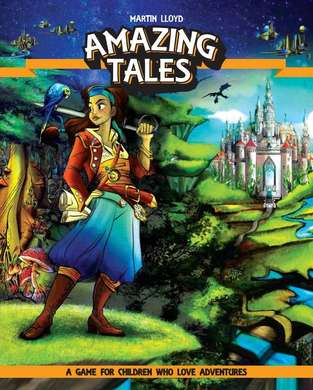 What can you do when you have no players waiting for you to blow their minds with a great story? Well, I looked to my kids one night after a bedtime story request. My trouble was that I find reading my kids bedtime stories to be more of a tedious chore, so I decided to stick to what I enjoy and pulled out a child-friendly RPG. Getting kids into roleplaying games can be tricky, the following are my choices of systems that I think are great roleplaying games to play with kids. 1) Tails Of Equestria Created by one of the writers of the My Little Pony TV show, this book contains the core rules and an adventure to get you started. All you need are character sheets, dice and some tokens to reward good roleplaying. The book takes you step by step through the very easy to read rules and character creation, with the addition of a starter adventure that would take two perhaps even three sessions. As it comes from an existing universe of characters and locations, there are lots of possibilities to grasp your young ones’ imagination, aided by a TV show that you can use as an inspiration source. 2) FATE Accelerated This version works better than Core FATE for kids, as the Approach system is far easier for younger kids to understand, compared to using a list of skills. Asking a child “what does your character do?” followed by “how does s/he do that?” then having them roll the dice and get excited about the result is very rewarding. There’s no setting too far for this generic system to work with: the sky, or underdark, or goblin mines, or starship… you get the point. My only advice is to get some ideas about a good point economy before just jumping in. 3) Amazing Tales Fairly new to the market, I picked this up as soon as I found out about it. It’s very simple and you can be running a game with your kids in around 10 minutes after opening the front cover. The character creation is fun and simple. You just need a name, picture, and things they are good at and your kid is ready to get adventuring. With only three parts to character creation kids should easily be able to concentrate long enough to get the job done, just fill out the super simple character sheet, of which there are a few designs (either text only or picture boxes to explain your skills), and you’re on your way. The rulebook comes with three child friendly settings for you to jump in feet first. 4) Lasers and Feelings This is a free, one page rule set that makes it simple to quickly roll up an entire game using only 3d6, although it is better with a few more dice. Within just a few steps and the provided tables you can roll up a character and the GM can quickly throw together a session. If you scout online you may even find homebrew variations including settings like Mouseguard. With only a single page of rules, Lasers Feeling is the simplest game to run: name your character, pick a number between two and five (inclusive), then roll up an adventure on the tables. Whatever game you choose from this list or elsewhere, make sure you keep in mind that children can have short attention spans which can lead to them not playing. This is fine, just call a break and come back another time. Including your child’s ideas into the game can prolong their enjoyment of it and focus, so be flexible and remember that if they enjoy playing now, you can run games for them and their friends creating the next generation of roleplayers. Let’s keep this great hobby alive! Ross Reid is a roleplay enthusiast who enjoys creating and running campaigns both as GM and player, he is currently in the middle of a one year CoC campaign with his original character still breathing, and has a preference toward the FATE games. He is currently working on a 24 hour roleplay marathon split over three days to raise money for a children's hospital in Edinburgh, Scotland. Picture Reference: https://www.drivethrurpg.com/product/222950/Amazing-Tales-complete-kids-RPG 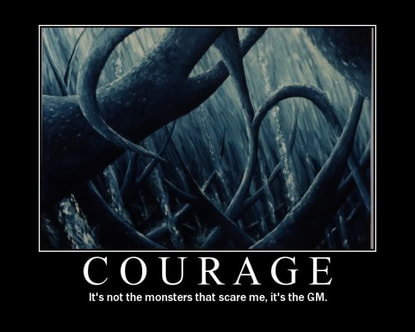 The dungeon master has the power to make or break a game. Good dungeon masters can transport you to a land of fantasy, and make even the clunkiest of game mechanics fun and engaging. Bad dungeon masters, on the other hand, can take what looks like a great game on paper and make it into the kind of experience that will drive you to drink. If you have yet to be visited by any of the dungeon masters on this list, then beware! For in your future you may yet have to contend with… 1) The Naked Emperor Every dungeon master was once new. There was a time when you didn’t know where the monster stats were, when you bungled a plot twist, or when you messed up rules calls more often than you got them right. But most dungeon masters learn from these mistakes, re-read the text, and eventually find their groove. Not the Naked Emperor. No, for you see, the Emperor has no need of such plebeian things like books or lore with which to make their decisions. Clothed in the invisible garments of their own brilliance, it’s uncommon for the Emperor to even know the mechanics of the game they’re running beyond the very basics. Convinced that the stories they have to tell transcend such things, questions about damage, resistances, or even class features are met with a dismissive wave of the hand. In short, the Naked Emperor is the know-nothing DM who has no interest in getting into the mechanics of how the game runs, because that isn’t their concern. They rarely keep players for long, and when those players find other groups it can take some time to forget the behavior they learned in the Emperor’s Court. 2) The Author In an ideal game setting, the dungeon master runs the non-player characters, the plot, and the world physics. The players are in control of their characters, and the actions those characters take. The dungeon master sets up the situation, the players react to it, and collaboratively they tell a story. Not at the Author’s table. The Author sees themselves more as a director of all the action taking place at the table. While the players might be the ones behind the characters, they’re treated more like actors on a set. They can improvise, and put their own spin on things, but the Author insists on certain paths being taken, and certain actions not being taken. Their games are characterized by problems with one-and-only-one solution, by constant interruptions explaining to players why their current actions will not work, and at times literal divine intervention pointing an arrow down a specific path. No matter how beautiful the setting, how flowery the words, or how attentive to mechanical detail an author is, their games tend to feel more like a police state where you are attempting to guess the dungeon master’s desires rather than playing. Because without freedom, you’re not playing a game… you’re just part of a play where only one of you has the script, and he won’t share it with everyone else. 3) The Schoolmaster A good gaming group has its share of messing around, in-jokes, and silliness. After all, you’re getting together around a table with your friends pretending to be elves, dwarves, wizards, and assassins… it’s kind of a silly thing to be doing, and taking yourself too seriously can backfire. No one seems to have told the Schoolmaster this, though. The Schoolmaster has underlying rules to how a game table should be managed. Players should be attentive, listening to all of the information they relate before taking the baton back so they can begin roleplaying again. The Schoolmaster expects you to listen when they talk, and to follow their lead. In short, they treat their players more like children who need to be corralled, and less like adults who are here to have fun together. When the dungeon master tries to get everyone’s attention, it’s a good idea to listen. But when they start threatening to give players detention, and lecturing instead of being part of the game, it’s time to move on to a table run by someone who isn’t possessed by the spirit of Ichabod Crane. 4) The Adversary RPGs are full of uphill battles, ambushes, tense negotiations, and hard-fought skirmishes. These are the challenges the characters have to overcome in order to reach their goal, and to bring the story to its completion. And while no dungeon master wants to make it easy on the players, most of them don’t want to kill the party. The Adversary does. For the Adversary, the story is a secondary concern. The game has a binary outcome, and for them to win, the party has to die. Adversaries tend to have enemies that are noticeably outside the party’s weight class, but they are also the first to cry foul if a tactic or power proves particularly successful against their villains. They will out-and-out strip abilities from player characters, stating that they no longer work, or switch tactics entirely to ensure that strategy is nullified completely. Worst of all, though, Adversaries have no empathy for the players’ goals. They may pay lip service to the idea that you’re all here to tell a story, but the Adversary won’t consider the game a victory if they haven’t made the players bleed for every inch of ground they cover. Adversaries breed mistrust, but even worse, they can lead to players grabbing every advantage they can possibly find. This often leads to dungeon masters who aren’t adversarial thinking these players are just power-gaming munchkins, more concerned with bonuses than with the story. Adversaries leave scars and habits that can be hard to unlearn. 5) The Punisher A good dungeon master lets the laws of cause and effect play out in the world. They arbitrate things neutrally, and allow complications and solutions to arise naturally from the actions of the player characters. In short, their actions have consequences, but those consequences fall into the “what comes up must come down” school of mechanics. This is not the case for the Punisher. For the Punisher, any act that fails is an excuse to inflict upon that character an Old Testament level of pain or humiliation. A Punisher’s critical fumble deck is well-thumbed and dog-eared from use, and they’ve never once asked players if they even wanted to use that optional mechanic. They simply take it as a given. The Punisher takes glee in natural 1’s, and may even attach consequences to regular failed rolls, as well. Broken weapons, injuring yourself, feedback from spells that failed to penetrate an enemy’s defenses, and even slipping on random banana peels and falling prone in the middle of a fight are all commonplace for the Punisher’s games. Some Punishers play it straight, giving the same drawbacks to the monsters, but they fail to see that a monster breaking its weapon has a much smaller impact overall than a PC who has lost their primary weapon in the middle of a dungeon. Punishers tend to suck the fun out of a game, particularly if the table is on a good run of bad luck. Adding insult to injury may be done in the name of “realism,” but the result is more often a game that feels like it actively wants you to stop playing. There are certain challenges we all have to face in life as gamers. Remember that if you’re ever faced with one of these dread DMs, remember that if you survive you get XP… and you’ll learn to recognize the signs the next time you see one of these game masters across a table. For more from Neal Litherland, check out his Gamers archive along with his blog Improved Initiative! Picture Reference: https://dungeondutchess.com/tag/gm/ 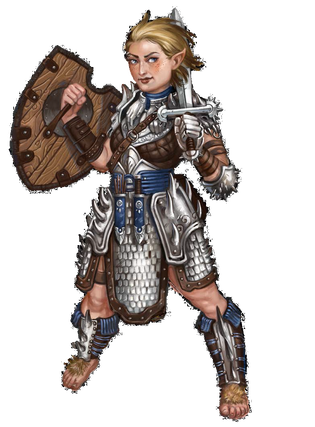 “Any axe is a good axe.” Ah, Dwarves. Every races has a certain stigma behind them in small human towns. For the most part, adventurers seem to be the exception to this. Although not every Elf is for equal rights, and not every Halfling is brooding and in (really adorable) plate armor. Of course it's worth exploring these wonderful little worlds of stereotypes because often they're based on a shred of truth. Or in other cases, a rather large pile of truth. 1) Elves A personal favorite of mine, Elves are the pointy eared, bow-shooting, magic-casting tree folk with an unnatural beauty and a thoughtful nature. Beware, because behind that calm and collected nature sits a xenophobe true and true. Who hasn’t wanted to spew racial slurs at everything under the sun every now and then? Humans? Inferior. Dwarves? Idiots. Halflings? Won’t amount to anything. Elves are the gods’ masterpiece and no one can take that away from them. When you start peppering everyone on the field in a volley of well aimed arrows, the party may reconsider using you as gnoll bait. 2) Dwarves Drunken brawling is a fun hobby, and the only hobby that Dwarves probably made into an art. If you can’t drink yourself under the table as a Dwarf, you just aren’t living to their full potential. Not to mention your average Dwarf almost likes their liquor as much as they like their friends, with their Lawful Good tendencies and all. You’ll be the envy of the party, as being proficient in smith's tools lets you maintain and create armour and weapons for the party. But don’t let those pesky Elves get word of your craftsmanship, otherwise they’ll be begging for some of your work. 3) Gnomes Wisecracking and friendly sometimes Gnomes are a little underrated, but when you mix magic and tinkering the results are usually rather splendid. Albeit being so small may have its disadvantages, it usually means you’re just that much harder to hit with a battleaxe. When the going gets tough, Gnomes have a tendency to make the going softer, between a loveable nature and invaluable skills Gnomes are quite the asset to any adventuring group, mostly due to their friendly natures and the neat little gadgets and do dads. Just don’t let them hear you demean their work, or it may spark quite the little fury. 4) Half-Orcs Fury. Gods. Good and evil. These are all the truths that a Half-orc faces in their lives. They all feel the pull of the god that calls to their very blood. All know the anger that makes their heart beat and their blood boil. The very fact that they are seen as being born of evil causes many to end up there. Their tenacity, both of body and mind are what marks Half-orcs. They aren’t made of stone. They’re made of bone, and when they pull yours from your body, you’ll know what it means to be a Half-orc. Bunch of badasses. Of course, real world stereotypes aren’t fun, but games are games, right? Jarod Lalonde is a young roleplayer and writer whose passion for both lead him here. He’s often sarcastic and has a +5 to insult. Dungeons and Dragons is his favorite platform. Although he’s not quite sure if it’s Cthulhu whispering to him in the small hours of the night, or just persistent flashbacks to the Far Realm. Picture Reference: https://www.pinterest.ie/pin/299207968980723733/  With the amount of media the average game master encounters in their day-to-day lives, It’s easy for them to assimilate that media into their games. Some may consider this unoriginal, but in this ever expanding sea of pop culture we find ourselves in, it is impossible not to be inspired. When it comes to your home games, there’s no reason you can’t take ideas you like from your favorite franchises and blend them together. As a matter of fact, I would argue that doing so for your group can be incredibly beneficial. I’m not condoning plagiarism of course, or trying to rewrite an existing setting and sell it. But if it’s for the entertainment of those in your group, there’s no reason not to pillage and plunder intriguing concepts by other creative types. Here are four reasons it can be beneficial to your campaign. 1) Familiarity When everyone is inhabiting an imaginary world together, it helps if all of the players and GM are on the same page. If your world features a concept that is similar to something found in pop culture, it can pay to simply explain that to the players. There’s a reason many fantasy settings feature the classic races of Elves, Dwarves, and Halflings. They’re familiar. Most gamers have at least heard of Lord of the Rings and the creatures found within Middle Earth. This is not to say that you need to follow a path that is so well trod. There are so many wonderful places to pull from that many gamers would understand. If you’re running a dark sci-fi game that features man-eating aliens, there’s nothing wrong with pointing out their similarities to the Xenomorphs from the Alien movies. This puts the players in the right frame of mind from the get-go. 2) Catered to the Players If a game master is familiar with their player’s interests, it can help to reference those things and spark their passions. While this is similar to familiarity it is separate for one major reason: Passion. Just because someone is familiar with something doesn’t mean they are passionate about it. Is a player in your group obsessed with Harry Potter? Why not add a school for heroes in your setting? Do you have a player that loves the exploratory aspect of Star Trek? Consider running a hex-crawl in your setting. 3) Something Totally New My favorite reason to steal ideas from various sources is how easy and fun it can be to combine those ideas into something else completely different. Some of the most unusual concepts can be merged together to create something amazing. The results could be bizzare, like combining the dark fairy tales of the Brothers Grimm with the far-flung future of the modern space opera. Alternatively it could be a bit more subtle, like combining elements of the matrix with vampire hunting. Regardless, the results can be wholly awesome, and incredibly unique. 4) The Hype Train With the Marvel movies in full swing right now, it’s no surprise that superhero RPGs are big sellers. These sort of influences can really get a gamer pumped, and there’s no reason a game master can’t tap into that. Have you designed a space opera setting? Ask the players if they want to play in a campaign where they are wanted criminals who happen to be the universe’s last hope, like the Guardians of the Galaxy. If you time it right, this can be a big boost of energy to get a campaign started. This may be best for shorter campaigns; as the hype dies you may find the game loses its staying power. We all have influences from our favorite franchises, and there’s nothing wrong with embracing those passions and putting them into the game. They are a part of you after all, you may as well use them to your advantage. Nathan Carmen is the founder and head writer of the Indie RPG company, Tricky Troll Games. Nathan loves building worlds and improving his craft when he’s not busy parenting. Reach Nathan at [email protected] or check out the TTG website at https://nathanccarmen.wixsite.com/trickytrollgames. Picture Reference: https://comicbook.com/marvel/2018/03/07/marvel-cinematic-universe-movies-ranked-best-worst-black-panther/ |
All blog materials created and developed by the staff here at High Level Games Archives
April 2023
Categories
All
|
Proudly powered by Weebly
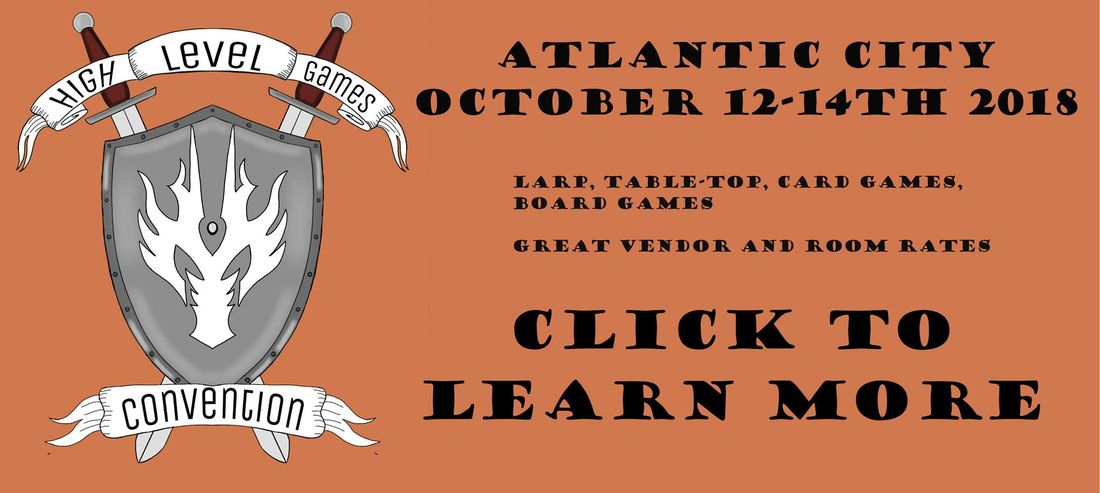
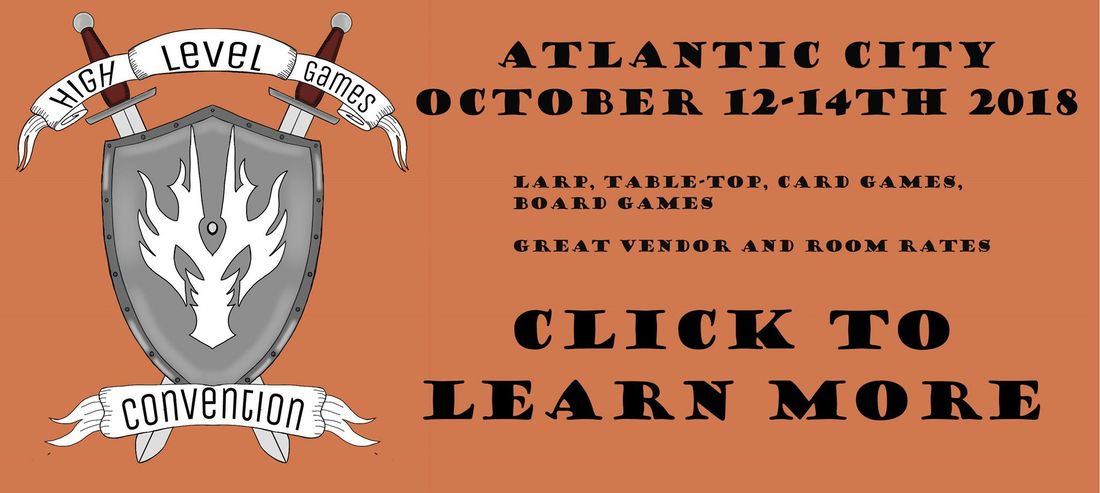
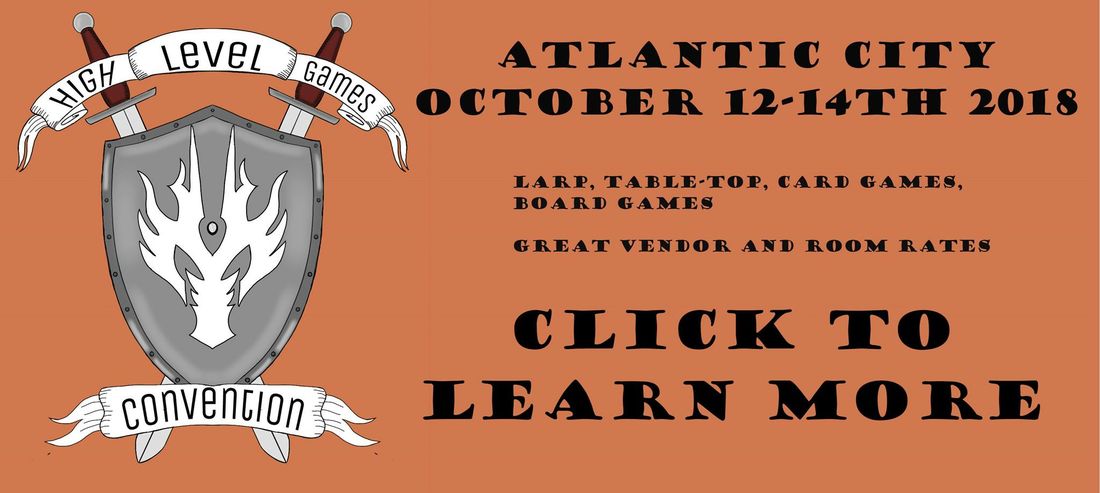
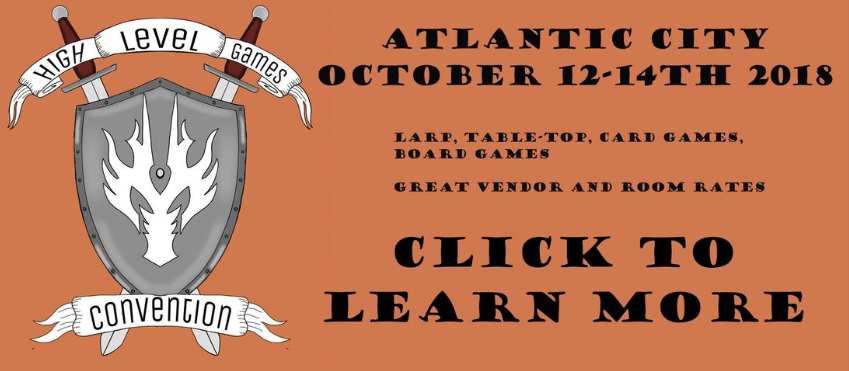
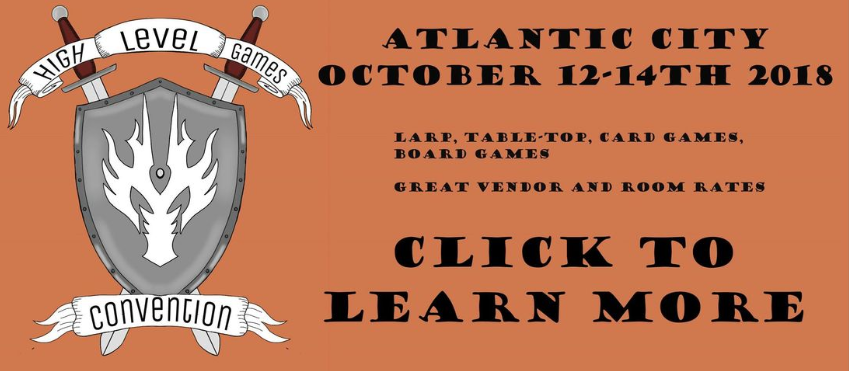

 RSS Feed
RSS Feed